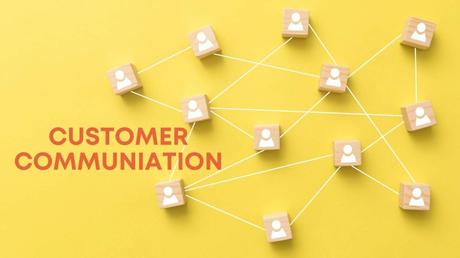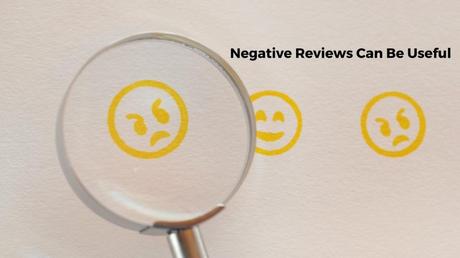
Customer Communication is the foundation of any business. Even if your company produces a unique product or sells it at an attractive price, you should not skimp on the quality of customer service. If you think this is an exaggeration, let’s consider a fictional example.
The buyer, Bob, finally saved up the money to buy his first car. He’s unsure whether to go to a small and cheap car dealership or to a large chain where prices are higher.
Bob calls the local car dealership. The consultant listened to his questions but could not answer them because another customer came to the store. They promised to call Bob back but didn’t. Bob called again a few days later and landed on another salesman who didn’t know anything about his request.
So, Bob feels he cannot trust the dealership after that, and he decides to contact the larger company. This situation would have easily been avoided if the store had used a system for unlimited audio recordings of customers’ calls.
This simple example demonstrates how important customer communication is for small businesses in a highly competitive environment. Keep on reading the article to find out how to boost customer communication and make it one of the top competitive advantages of small businesses.
 Learn how you can boost customer communication with your customers to have a thriving business.
Learn how you can boost customer communication with your customers to have a thriving business.
The Importance of Customer Communication
In practice, customer communication is not just about consulting customers and responding to their complaints. It is a whole system of organizing business processes. Therefore, the key to building effective communication is understanding why companies need to communicate with clients at all.
Here are the main reasons:
- It helps to attract and retain customers. According to the PwC report, 73% of clients pay attention to the customer experience when making a purchase decision.
- It strengthens a company’s brand. Brand-loyal customers continue to buy from your company over a long period, creating consistent sales. Moreover, 43% of buyers would pay more for a higher level of client service.
- It promotes your business. It is especially important for small businesses to connect with their audience to gain a firm foothold in the market.
- It helps to generate new ideas. A company may create a unique product, improve an existing one or expand the range if it understands the needs of customers. For example, imagine you are the owner of a local grocery store, and a few customers have complained there was no gluten-free pasta. So, if you diversify, the product lineup will increase, as will customer loyalty, and you may attract new clients.
- It boosts profit. Repeat happy customers spend more than double what new ones do. It is a fact that it costs more to attract new customers. Regular customers are also not so price sensitive. You’ve already established a good relationship, so people prefer to pay a little more to you rather than spend time looking for another firm. Therefore, customer communication is for the long term.
Repeat happy customers spend more than double what new ones do. It is a fact that it costs more to attract new customers. #happycustomers
Click To Tweet
10 Ways to Boost Customer Communication
Be patient.
If you communicate with clients on a daily basis, you should be patient even in difficult cases. It is always better to thoroughly understand the issue and offer competent advice than lose your client.
Do not use scripts for customer communication.
Your communication will be dry and impersonal if you use only pre-prepared phrases. Clients quickly understand if you read from a piece of paper.
This causes irritation and leaves a negative impression. Therefore, make sure that support uses only live communication.
Train your team to boost customer communication.
It is very important that your employees know how to communicate with customers in accordance with the values of your company. So, you should conduct training and corporate games and discuss particular situations together.
Do not punish employees for customer complaints; otherwise, they will simply hide them. Instead, encourage effective complaint resolution but not a reduction in the number of complaints.
Everyone in the company should understand the connection between productive complaint handling and the company’s progress.
Automate customer service.
Install a CRM system and other digital tools. It will help you to organize all incoming requests and manage them from one place. This kind of system will also significantly reduce the response time and help to increase the productivity of your employees by minimizing routine work.
So you will be able to focus on better understanding and satisfying your customers’ needs.
Pay particular attention to social media.
Social networks are an important platform for customer communications. Through social networks, clients find answers to their concerns about your products and services.
Create a social media support channel that tells your customers what to do when they need to file a complaint or ask a question. If you notice multiple requests for the same issue, fix it and let your customers know about it.
This way, you will reduce the number of incoming complaints. Furthermore, be sure to set up a listening tool so you can monitor all your social channels when your brand is mentioned.
 Learn to stay on top of social media messages and posts that may want a response from your business.
Learn to stay on top of social media messages and posts that may want a response from your business.
Answer all requests for customer communication.
Sometimes you will get messages from angry customers. In some situations, you will be responsible for their reaction, but in others, you will have nothing to do with it. Regardless, do not ignore such comments.
You should respond to all requests if you want to control the damage they cause. Try to respond as quickly as possible before a new wave of negativity forms.
Any delay will only frustrate the client and give others a reason to write a bad review.
Show empathy.
Empathy is the best way to show your customers that you really care about them. Even if you cannot always solve a client’s problem, showing empathy helps clients feel that their problems matter. There are so many tips to train empathy skills.
For example, practice active listening. Sometimes clients can not specifically explain what exactly they are not satisfied with. In this case, your task is to listen carefully to them and ask clarifying questions to understand the essence of their appeals.
Another tip is to always acknowledge the client’s problem. Do not make excuses or argue with the client. Agree with their feelings and experiences, so they will understand that you are on the same side.
Use only positive language in customer communication.
This means telling the client what you can do for them, not what you can’t. Imagine that a customer contacts your company to order 30 kilos of cat food, and the goods will be delivered only next month. Now compare the two answers.
You can say: “We can’t ship it right now. You will have to wait until next month”, or you can answer: “We are getting the item next month. But I can place an order for you right now. We will ship it to you as soon as the item is on stock”. We are sure you see the difference.
Be honest in your communications.
Do not try to fool your client. If there is a problem, acknowledge it and tell the client what you are doing right now to fix it. No system is perfect. Customers understand that failures can occur within any company.
However, if you hide something or pretend to solve a problem, the client will find out about it and lose trust and confidence in your brand.
Use expert experience.
Small business is the initial stage of a company’s long journey. And it’s always easier to learn from the mistakes of others than to make your own. Perhaps someone has already solved similar problems, and you can use some ideas from their experience.
Why Negative Reviews Are Good for Your Business
Bad reviews are a stumbling block for most businesses. Many entrepreneurs think the fewer, the better. On the one hand, this is true, but on the other hand, feedback helps companies improve their business. Do not be afraid of bad reviews; you should just know how to work with them. And there are some reasons why your company actually needs bad reviews.
- Complaints are an efficient and cheap way to get customers to rate a company’s products. Usually, it is hard to get the information that customers write in the complaint form in any other way. It is valuable information through customer communication about the shortcomings that you might not know about at all.
- Bad reviews allow you to understand the real needs of clients. You may never know what customers really need until the product fails.
- Negative feedback is a possibility to correct the situation and retain customers. Most clients prefer to choose another company rather than complain. Therefore, it is important to give customers an opportunity to complain and make this process convenient and reward them for feedback.
 Negative reviews can be good for your business.
Negative reviews can be good for your business.
Furthermore, another benefit is that effective complaint resolution can be a source of positive feedback. Although a client remembers your oversights, they also remember what you did to compensate for the damage.
Final Thoughts on Customer Communication for Your Business
Of course, customer service cannot exist without quality products or services. But boosting customer communication is a profitable investment for small businesses. You do not have to do everything at once. Create a strategy and take small but sure steps toward your satisfied customers.
What are you doing to boost your customer communications? I’d love to hear about it in the comment section below.
 Try it for FREE – Get mentions of your brand on Facebook or Instagram, so you can engage quickly.
Try it for FREE – Get mentions of your brand on Facebook or Instagram, so you can engage quickly.

